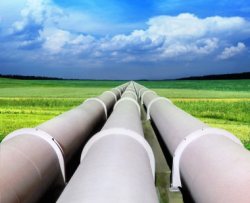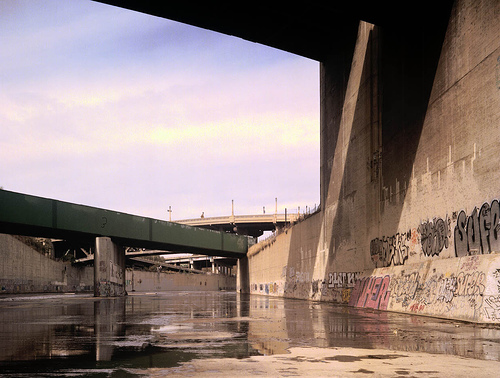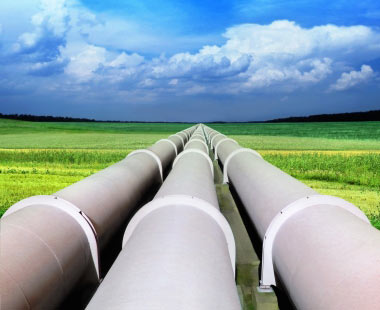
If these belonged to Enbridge, that grass probably wouldn’t be green.
The worst inland oil spill in U.S. history was in Michigan in 2010, from a pipeline owned and operated by Canada-based Enbridge. (We’ve talked about it before.) Hundreds of thousands of gallons of tar-sands oil spilled in and around the Kalamazoo River. Investigators blamed “organizational failures at Enbridge Incorporated.” (In June of this year, the river was “returned to its people,” which is a weird way of saying that it’s mostly been cleaned up.)
Anyway, I wonder who will be blamed for last Friday’s leak?
Canada’s Enbridge Inc prepared on Sunday to replace part of a pipeline that leaked more than 1,000 barrels of oil in a Wisconsin field, shutting down a key conduit from Canada and provoking fresh ire from Washington. …
Enbridge said two landowners had been affected and that one family had been relocated for their safety and comfort, but that most of the spill was restricted to the pipeline right-of-way. It kept its estimate of the spill at around 1,200 barrels — about as much as would fit in six very large oil tanker trucks.
It found some oil on two small farm ponds, but said they did not connect to moving waterways and that drinking wells did not seem to be affected.
Local residents said one house had been “covered with oil.” Oil trucks, Enbridge vehicles and about a dozen crews were working in the area, which had been cordoned off by sheriff deputies. Local law enforcement officials said they had been told it may take up to 30 days to clean the area.
The oil spilled in Wisconsin is regular crude, not hard-to-clean-up tar-sands oil. But it’s still awkward timing for Enbridge. The company is in the process of seeking approval for a pipeline that would carry Alberta tar-sands oil across British Columbia. If the Canadian government decides to go through with it, we strongly recommend that it insist Enbridge use the pipes that aren’t perforated. And/or have staff assigned to stand next to the pipeline every 50 meters holding buckets. And/or lay down a tarp beforehand.



